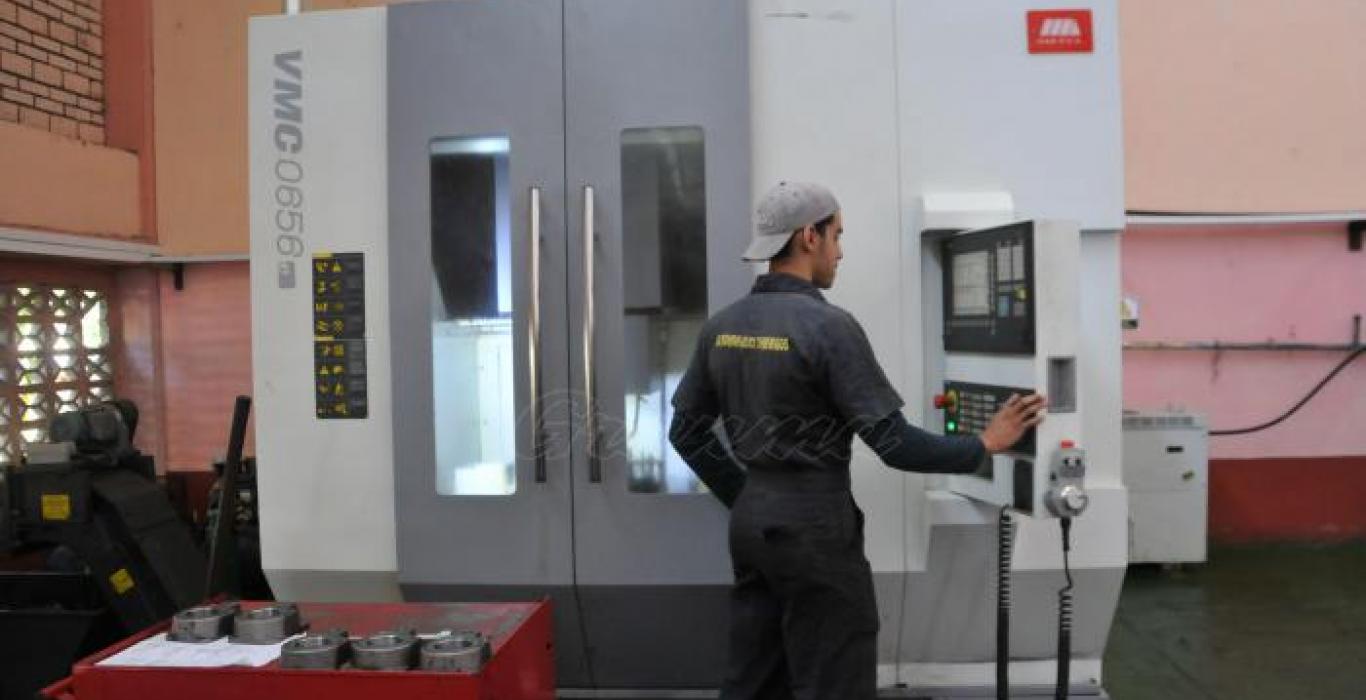How does Cienfuegos Oil Hydraulic intend to be a smart industry?

Today the professional field is associated with routines motivated by digitization in Cienfuegos Oil Hydraulic. Photo: Julio Martínez Molina
Automation is one of the pillars of the Cienfuegos Oil Hydraulic, whose main productions are carried out from machines controlled by computers, with automated designs and controls.
This industry, the only one of its kind in Cuba, substitutes imports by manufacturing, now, complete equipment such as pallet trucks (to move merchandise), jib cranes and hydraulic presses –modules used in automotive workshops–, together with another group of intended accessories, between various economic fronts of the country, to the Mariel Special Development Zone.
The director of Strategic Projection, Jesús Peña Ríos, considered that technological renewal through automation places the southern entity in a leading position within the national industry, having about 14 CNC (Computer Numerical Control) machines, between lathes, milling machines and mechanized centers.
As the young mechanical engineer Mario Javier Mayolino Peñalver emphasizes, the professional field is today associated with the routines imposed by digitization. There is a technical department where they design the parts, then they go to the workshop area and, with the CNC programmer, we adjust the software to manufacture them on the automatic lathes, he said.
Peña Ríos explained that from 2015 the automation process began, through maintenance, capital repair and modernization actions; in addition to the approval of investments to acquire new equipment.
That leap to development responds to a much larger goal: to turn Cienfuegos Oil Hydraulic - towards 2030 - into a 4.0 or intelligent factory. It is now one of the priorities established in the medium and long terms, in order to achieve the automation of all its processes: production, control and relationships with customers and suppliers.
Together with the universities for objective 4.0
Together with houses of high studies, and in collaboration with Desoft, Etecsa and Cedai, they work on the interconnection of the equipment to the entity's network, to subsequently link to a national system. Although it is still undergoing a diagnostic stage, last year the first step was carried out with CNC machines.
Lixander Hernández Viera, general director, indicated that this first ongoing stage of the Oleohydraulic automation process contemplates, in addition to the aforementioned diagnosis, the capture of signals from technological equipment, the processing of the information captured for automatic correction actions in each variable and communication with the plant's computerized network.
The director of the Cienfuegos Oil Hydraulics added that stage two, characterized by the proposal of robotic and intelligent applications (artificial intelligence) within the process, includes the definition, according to the existing flow, of the automation points. Start at the machining line, he said.
The second period also provides for the establishment of changes in the organization of the production flow.
Yusnier Valeriano Medina, head of the Automatic Control Department of the Central University of Las Villas and member of the National Group for the Development of Robotics, pondered the concept used here of working the conversion into an intelligent industry by stages or parts, and in that sense the level of automation being sought is essential, he considered. In the opinion of the expert, in the Oleohidráulica entity the conditions for the jump exist.
Frank Hernández González, general director of the Carlos Rafael Rodríguez University, in Cienfuegos, pointed out that this educational institution began to work here with four professors, automatic and computer scientists, engaged in the analysis for the connection of the numerical control machines.
Already the one that breathes a while ago in the factory is the 4.0 environment. Advanced in Cuba, the Oil Hydraulic workers are working to materialize this effort.